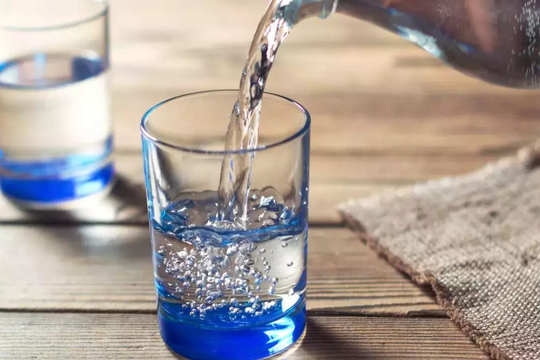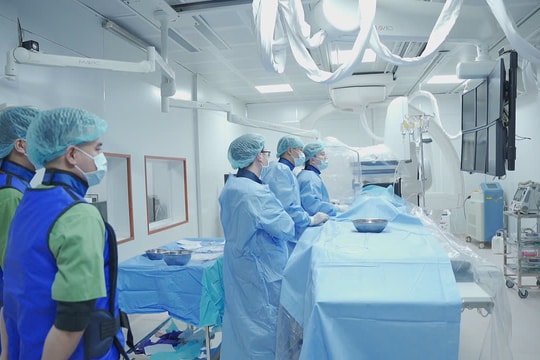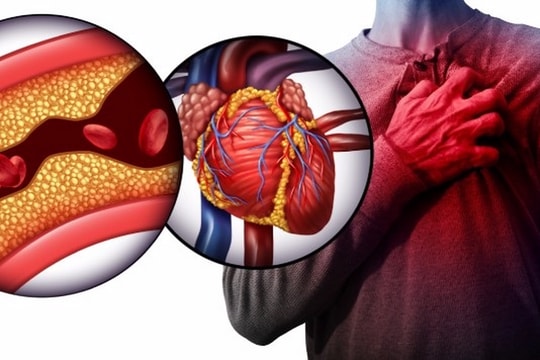Stroke warning in young people
Stroke was previously considered a disease of old age, but now, records in hospitals show that it is spreading to young people. The cause stems from the lifestyle that most of us have.
Hyperlipidemia - stroke: A perfect pair
Recently, the National Institute of Nutrition has released alarming figures on dyslipidemia. One in four people has fatty blood or fatty liver. If in the past, fatty blood disease was usually concentrated in people over 60 years old with a rate of 63%, today, it is tending to be younger.
 |
The latest statistics show that the number of young people with dyslipidemia accounts for 29% and is mainly concentrated in urban areas. Professor, Doctor Pham Gia Khai, former President of the Vietnam Cardiovascular Association, a senior cardiovascular expert, said: "70% of dyslipidemia is related to the body's metabolism. When the composition of blood lipids changes, it will also cause changes in blood sugar levels, kidney function... Anyone can suffer from dyslipidemia, even thin people. In fact, this disease is showing a tendency to get younger."
“Patients with dyslipidemia are at risk of stroke at any time. This is because the patient's blood vessel walls are easily damaged, fat cells are deposited in the blood vessel walls forming atherosclerotic plaques. When there are many atherosclerotic plaques, the lumen of the blood vessels is narrowed, the blood transport speed is slow, and blood clots are easily formed.
Normally, there is always a certain amount of fat in the blood, however, when there is a lipid disorder, the fat content in the blood will increase or decrease abnormally, possibly increasing total cholesterol, increasing LDL-cholesterol "bad" and triglyceride, decreasing HDL - "good" cholesterol. Harmful components in fat increase and beneficial components decrease, thereby harming the body.
They cause blockage of the aorta, blood blockage anywhere in the body can be dangerous. If the blockage is in the heart, it will cause myocardial infarction, blockage in the brain will cause cerebral hemorrhage, blockage in the limbs can cause pain, cyanosis, necrosis. For the kidneys, it can cause renal artery stenosis and kidney atrophy...", Professor Pham Gia Khai emphasized.
Hyperlipidemia causes serious complications but people often ignore it. Professor Pham Gia Khai added: "The symptoms of hyperlipidemia are often unclear, so few people know they have the disease. Especially in young people when their health is good, they often ignore the signs of a transient stroke such as: suddenly dropping chopsticks while eating, loss of feeling in the limbs or pain in the limbs, limping..."
In fact, according to hospital statistics, the rate of stroke in young people is increasing, averaging about 2% per year, with the number of men being 4 times higher than that of women. About 50% of stroke patients die. This rate increases many times if it recurs after 3-5 years.
Eating habits: The culprit of disease
The reason young people have an increased risk of dyslipidemia and stroke, according to Master, Doctor Doan Thi Tuong Vi, Institute of Clinical Nutrition, this is a disease closely related to lifestyle and eating habits. A sedentary life, little physical activity, and an unbalanced diet, eating too much fat, fried foods, fast food, eating a lot of sweets, drinking a lot of carbonated drinks... increase the risk of disease.
In fact, this disease is common in people who regularly drink alcohol. Many people who regularly drink alcohol only find out they have high blood fat after going to the doctor. Many people wonder: "Why do I only drink, not eat, but still have high blood fat disorder?"
Explaining this case, Dr. Doan Thi Tuong Vi said: because alcohol still has a certain amount of calories (1g of alcohol has 7 kcal). But calories in alcohol are often empty calories, unbalanced in nutrition and not good for health. Besides, drinking with alcohol is often high in fat. Therefore, people who often drink are more susceptible to dyslipidemia.
According to Dr. Doan Thi Tuong Vi, to prevent dyslipidemia and avoid dangerous complications, we must have a diet low in animal fat, eat more fruit, less sugar, less rice; exercise more to release energy, drink less alcohol; and have blood biochemistry tests twice a year. When there are signs of eating less but still gaining a lot of weight, you should see a doctor soon.
According to VNN
| RELATED NEWS |
|---|





